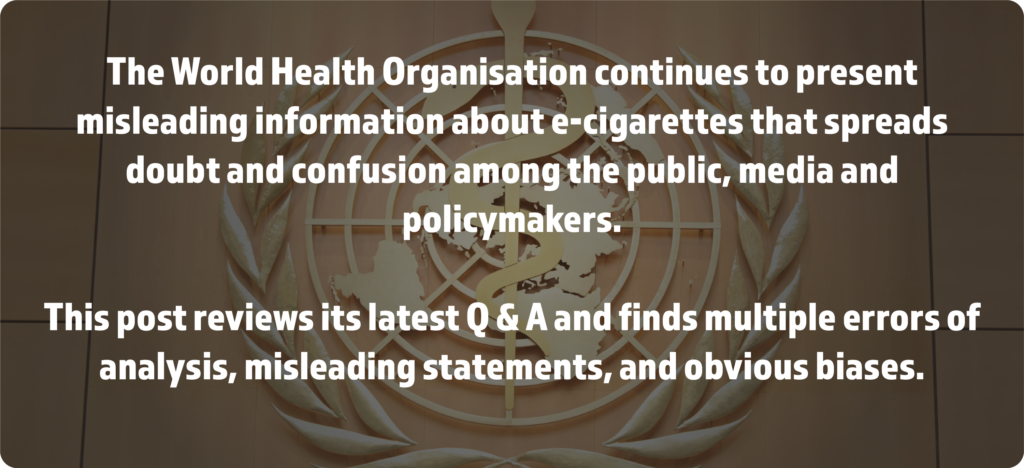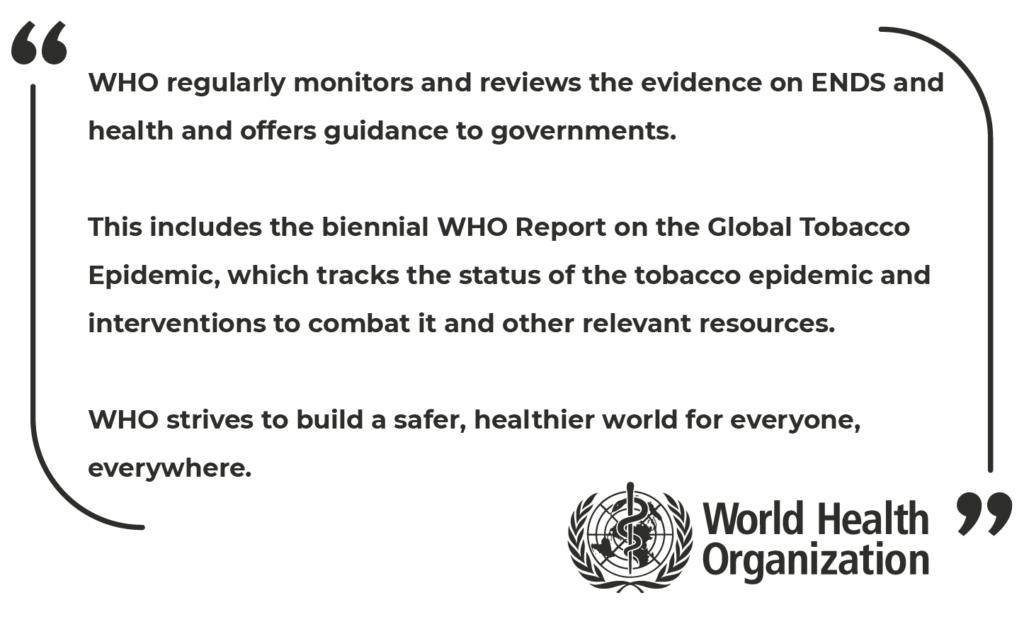Republished from Clivebates.com with the consent of the author

This section really reveals that WHO does very little other than publish prohibitionist propaganda. It is however worthwhile noting that its regrettable dependence on voluntary contributions leaves it exposed to major conflicts of interest.

WHO does not pay attention to the evidence. If it did there would be much more discussion of trade-offs and possible benefits and a proportionate and more realistic approach to the risks. In fact, the report highlighted, the WHO Report on the Global Tobacco Epidemic, was “made possible” by the private foundation of the billionaire, Michael Bloomberg, who coincidentally figures prominently in the report despite the claim that it is independent. The report acknowledgements include several anti-vaping activists, some funded by Bloomberg, brought in to do the work.

The influence of anti-vaping outsiders on WHO’s finances. Bloomberg’s foundation, Bloomberg Philanthropies, campaigns for vaping prohibitions to the extent possible wherever it works via the work of its grantees. Take the major Bloomberg funding recipient, the Union, for example: and its prohibition policy, Why bans are best. Bloomberg’s approach to evidence and data on tobacco is discussed here: Michael Bloomberg loves data. Except when he doesn’t.
WHO is conflicted by the funding it receives from pro-prohibition Bloomberg Philanthropies ($23m). Then there is also the much larger WHO donor, the Bill and Melinda Gates Foundation ($592m), which supports a range of organisations hostile to tobacco harm reduction. In addition, there are also pharmaceutical companies like GSK ($12.3m) that provide multi-million dollar donations to WHO but take a hostile stance toward e-cigarettes.
Note that this money does not have to be spent on anti-vaping campaigns for the policy position of the donor and the donation to create a conflict. The point is that anti-vaping organisations play a significant role in WHO’s finances.
Written by Clive Bates




